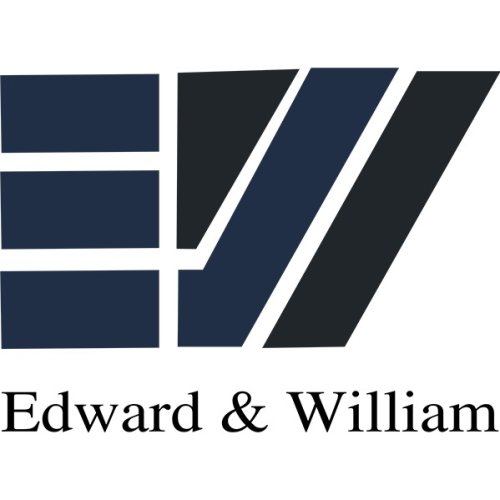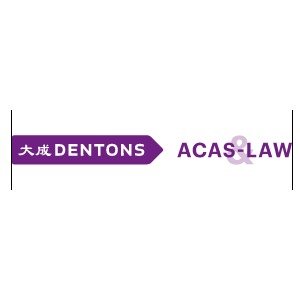Best Employment Benefits & Executive Compensation Lawyers in Port Harcourt
Share your needs with us, get contacted by law firms.
Free. Takes 2 min.
List of the best lawyers in Port Harcourt, Nigeria
About Employment Benefits & Executive Compensation Law in Port Harcourt, Nigeria
Employment Benefits & Executive Compensation law in Port Harcourt, Nigeria, is a specialized area of employment law that deals with the legal issues surrounding compensation and benefits provided to employees and executives. This can include salaries, bonuses, stock options, retirement plans, health benefits, and other perks that are critical components of employment contracts. In Port Harcourt, which is a hub for oil and gas industries, there are additional layers of complexity due to industry-specific regulations, making it essential for both employers and employees to understand the legal framework governing these matters.
Why You May Need a Lawyer
There are several scenarios where seeking the help of a lawyer specializing in Employment Benefits & Executive Compensation might be necessary:
- Negotiating employment contracts, especially for executive positions or highly specialized roles.
- Disputes over promised benefits, such as pensions, bonuses, or health insurance.
- Understanding the implications of stock options or equity compensation in start-up or tech industries.
- Guidance on compliance with local labor laws affecting benefits and compensation.
- Addressing unfair dismissal or wrongful termination with respect to compensation entitlements.
- Advising on tax implications associated with compensation packages.
Local Laws Overview
Nigerian employment law, which applies to Port Harcourt, is primarily governed by the Labor Act, with additional regulations from various industry-specific bodies. Key aspects include:
- The Labor Act: Provides broad regulations for employee wages and conditions, which encompass certain benefits.
- Pension Reform Act: Mandates that employers contribute to pension funds for their employees.
- National Industrial Court Act: Governs the resolution of employment disputes, including those related to compensation.
- Industry-Specific Compliance: Sectors like oil & gas may have additional compensation guidelines set by regulatory bodies such as the Nigerian National Petroleum Corporation (NNPC).
Frequently Asked Questions
1. What are considered standard employment benefits in Port Harcourt?
Standard benefits typically include health insurance, retirement savings plans, and paid leave. However, these can vary widely depending on the employer and industry.
2. Are bonuses and stock options part of executive compensation?
Yes, bonuses and stock options are often integral parts of executive compensation, aimed at incentivizing performance and long-term commitment.
3. How can I ensure my employment contract complies with local law?
It’s advisable to consult a lawyer who can review your contract terms to ensure compliance with local regulations and industry standards.
4. What steps should I take if my employer is not honoring agreed benefits?
You should first attempt resolution through internal channels, but if unsuccessful, legal counsel can guide you through dispute resolution or court proceedings.
5. Are employers required to provide health benefits in Port Harcourt?
While not mandatory by law for all employers, many companies offer health insurance as part of competitive employee benefits packages.
6. How is executive compensation typically structured in the oil and gas industry?
In this sector, compensation packages often include a mix of base salary, performance bonuses, stock options, and various allowances.
7. Can I negotiate benefits when offered a job?
Yes, it is common and often beneficial to negotiate employment terms, including benefits, to ensure they meet your needs and expectations.
8. Do benefits like pensions have tax implications?
Yes, certain benefits, particularly pensions, can have tax implications. It's important to understand these with the help of a financial advisor or lawyer.
9. What legal actions can be taken against benefit-related discrimination?
Discrimination can be addressed through formal complaints to relevant workplace authorities or through legal action under the guidance of a lawyer.
10. Are there special benefits laws for expatriates in Nigeria?
Expatriates may have different entitlements based on international agreements and private contracts, often necessitating specialized legal advice.
Additional Resources
For those seeking assistance or more information, the following resources can be invaluable:
- Nigeria Labor Congress (NLC): Offers guidance and support on employment-related matters.
- Pension Commission (PenCom): Provides information on pensions and fund management.
- Ministry of Labor and Employment: Responsible for policy and oversight on labor issues in Nigeria.
- Nigerian Bar Association: Can help locate qualified lawyers specializing in employment and compensation law.
Next Steps
If you find yourself in need of legal assistance concerning Employment Benefits & Executive Compensation, consider taking these steps:
- Research and identify qualified employment law attorneys based in Port Harcourt with expertise in your specific issue.
- Prepare all relevant documents, such as employment contracts, correspondence with your employer, and any related agreements, for review.
- Schedule consultations with potential lawyers to discuss your case and understand your options.
- Consider the attorney’s familiarity with local industry practices, particularly if you are in an industry with specific regulations like oil and gas.
- Ensure you understand the fee structure and services offered by the lawyer before proceeding with any legal action.
Having knowledgeable legal representation can significantly protect your rights and interests in employment benefit matters.
Lawzana helps you find the best lawyers and law firms in Port Harcourt through a curated and pre-screened list of qualified legal professionals. Our platform offers rankings and detailed profiles of attorneys and law firms, allowing you to compare based on practice areas, including Employment Benefits & Executive Compensation, experience, and client feedback.
Each profile includes a description of the firm's areas of practice, client reviews, team members and partners, year of establishment, spoken languages, office locations, contact information, social media presence, and any published articles or resources. Most firms on our platform speak English and are experienced in both local and international legal matters.
Get a quote from top-rated law firms in Port Harcourt, Nigeria — quickly, securely, and without unnecessary hassle.
Disclaimer:
The information provided on this page is for general informational purposes only and does not constitute legal advice. While we strive to ensure the accuracy and relevance of the content, legal information may change over time, and interpretations of the law can vary. You should always consult with a qualified legal professional for advice specific to your situation.
We disclaim all liability for actions taken or not taken based on the content of this page. If you believe any information is incorrect or outdated, please contact us, and we will review and update it where appropriate.

















